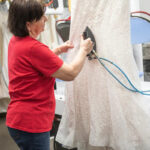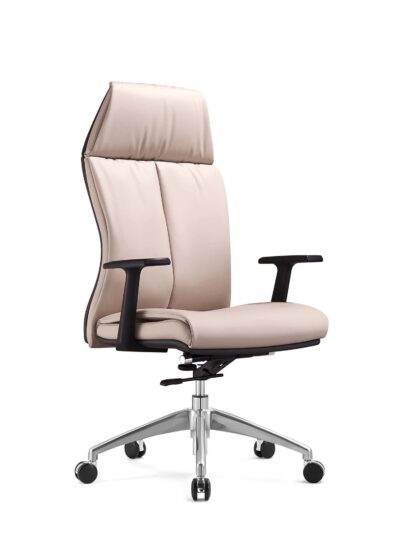In the ever-evolving landscape of the modern workplace, office environments are no longer static spaces. The rise of hybrid work models, growing environmental consciousness, and rapid technological innovation are reshaping how companies think about their workspaces. Central to this transformation is office furniture, which is becoming more adaptable, sustainable, and tech-enabled than ever before.
Gone are the days when desks and chairs served merely utilitarian purposes. Today’s office table and chair setups are designed with multifunctionality, employee well-being, and digital integration in mind. As businesses look to future-proof their offices, furniture choices play a critical role in defining productivity, collaboration, and environmental responsibility.
I. Flexibility: The Core of the Modern Workplace
Embracing Agile Workspaces
The global shift to hybrid and remote work arrangements has ushered in a new era of workplace flexibility. Traditional cubicles and fixed seating are being replaced with dynamic layouts that can accommodate diverse work modes, focus work, brainstorming sessions, video calls, and collaborative projects.
Office furniture is now expected to support this fluidity. Adjustable office chairs, mobile desks, folding tables, and modular partition systems enable companies to rearrange spaces on demand. For example, employees can transition from private, quiet workstations to open team collaboration zones within minutes.
Modular and Multi-Functional Designs
Furniture that adapts to changing needs is a hallmark of flexible design. A single office table and chair setup might support solo work in the morning, function as a group workstation by noon, and serve as a presentation table in the afternoon.
Multi-purpose desks with extendable surfaces, flip-up panels, and integrated storage solutions help maximize space usage, especially in compact or co-working environments. Lightweight, stackable office chairs with ergonomic support also enhance versatility without sacrificing comfort.
Supporting Employee Autonomy
Flexibility also means empowering individuals to personalize their workspace. Sit-stand desks, adjustable monitor arms, and chairs with customizable lumbar support give employees control over their comfort and posture. In the future, we can expect even more personalized settings, where sensors adjust lighting and seating preferences automatically based on user profiles.
II. Sustainability: Designing with Purpose and Responsibility
Eco-Conscious Material Choices
As environmental awareness deepens, sustainability has emerged as a defining factor in office furniture design. Companies are increasingly selecting products made from responsibly sourced, renewable, or recycled materials. Bamboo, reclaimed wood, biodegradable plastics, and recycled metal are becoming standard in the creation of office tables and chairs.
This shift not only supports global climate goals but also appeals to eco-minded employees who value a greener workplace. Low-emission adhesives, non-toxic coatings, and formaldehyde-free finishes further enhance indoor air quality and reduce the overall ecological footprint.
Circular Design Principles
Modern office furniture is being created with end-of-life use in mind. Rather than following a linear path from production to disposal, circular design encourages reuse, refurbishment, and recyclability. Modular furniture can be disassembled and repurposed, extending its life span and reducing waste.
Furniture makers are also introducing repairable designs—where components such as table legs, chair wheels, or fabric covers can be replaced without discarding the entire piece. This approach aligns with circular economy principles and helps companies minimize long-term costs.
Sustainable Manufacturing Processes
Eco-conscious design doesn’t stop at materials; it includes the way products are made. Sustainable office furniture is manufactured using energy-efficient processes, reduced water consumption, and minimal waste generation. Some production facilities now run on renewable energy and implement zero-waste policies to limit environmental impact.
By investing in responsibly made office tables and chairs, organizations demonstrate their commitment to corporate social responsibility, meeting both regulatory requirements and employee expectations for sustainable practices.
III. Tech Integration: The Smart Future of Office Furniture
Smart Desks and Connected Workstations
As technology becomes embedded in every aspect of work, office furniture is evolving to keep up. Smart desks with built-in charging ports, Bluetooth connectivity, and height-adjustment memory settings are now common in forward-thinking offices.
These tech-enhanced office tables can connect to mobile apps that encourage healthy habits, such as alternating between sitting and standing throughout the day. In addition, occupancy sensors and usage analytics help facility managers optimize space utilization and energy efficiency.
Intelligent Office Chairs
The evolution of office chairs is also undergoing a digital transformation. Intelligent seating systems can monitor posture, movement, and sitting time. When connected to ergonomic apps or building management systems, these chairs offer feedback and alerts to improve user habits, reducing the risk of musculoskeletal issues.
Some models feature adaptive technology that responds to a user’s body shape and automatically adjusts support, helping maintain proper posture during extended work periods. Over time, this integration may lead to chairs that learn individual preferences and make real-time micro-adjustments.
Seamless Device Integration
In a world driven by connectivity, office furniture must support the growing network of digital devices. Furniture is now designed with integrated cable management, wireless charging pads, concealed power outlets, and docking stations. This not only improves functionality but also enhances workspace aesthetics by reducing clutter.
Conference tables now feature built-in AV systems, microphones, and screens to support hybrid meetings. These smart setups allow teams to collaborate seamlessly, whether in the office or joining remotely.
IV. Health, Wellness, and Ergonomics
Ergonomic Office Essentials
Even with advancements in design and tech, the foundation of effective office furniture lies in its ergonomic value. With increasing awareness of workplace health, ergonomic design has become a standard expectation rather than a luxury.
Ergonomically designed office chairs now feature adjustable armrests, seat depth controls, lumbar support, and headrests to accommodate various body types and work habits. Paired with height-adjustable desks and footrests, these setups reduce fatigue, improve posture, and enhance concentration.
Wellness-Centered Workspaces
Beyond physical support, wellness-focused furniture aims to enhance mental health. Calming color palettes, biophilic elements like natural wood finishes, and flexible breakout areas help create a more relaxed and productive environment.
Furniture that supports movement such as balance stools, kneeling chairs, and standing desks encourages mobility throughout the day. This promotes circulation, reduces back pain, and contributes to a more energized workforce.
V. The Road Ahead: Merging Function with Experience
The future of office furniture lies at the intersection of functionality, experience, and environmental consciousness. As organizations continue to prioritize employee well-being, digital efficiency, and sustainability, furniture will evolve from static objects into dynamic tools for engagement and performance.
In the coming years, we can expect office spaces to be filled with:
- AI-driven furniture that anticipates user needs
- Fully recyclable, modular office setups
- Smart surfaces that interact with devices
- Furniture that supports neuro diverse work preferences
- Designs that blend residential comfort with professional utility
Whether it’s a single office table and chair or an entire office layout, the decisions made today will shape the future of work.
Wrapping Up: A New Era of Office Furniture Begins
The future of office furniture is not just about aesthetics or durability it’s about adaptability, sustainability, and intelligent integration. As work continues to evolve, so too must the environments in which it occurs.
By investing in flexible layouts, eco-friendly materials, and technology-infused designs, businesses can create workspaces that inspire creativity, support health, and drive long-term productivity. In this vision of the future, every office table and chair plays a role not just in supporting daily tasks, but in shaping the very culture and success of an organization.
- Modern & Custom made Office Furniture Suppliers in Dubai, UAE
- Office Furniture Store Dubai- High quality modern & custom made office furniture from BOSQ- the best office furniture suppliers in Dubai, UAE
- office furniture, office workstations, office cabinets, office table and chair, office chairs, leather chairs, ergonomic office chairs
Related posts:
 Nutrition and Wellness Programs in Assisted Living Communities in Oakville
Nutrition and Wellness Programs in Assisted Living Communities in Oakville
 Dresses Dry Cleaner services Lisle, IL: BY Napervalue Cleaners
Dresses Dry Cleaner services Lisle, IL: BY Napervalue Cleaners
 Easy EMI Card: Your Go-To Solution for Easy Monthly Payments
Easy EMI Card: Your Go-To Solution for Easy Monthly Payments
 Fitness for Mental Clarity: Unlock Your Focus and Inner Strength with DG FIT MIND
Fitness for Mental Clarity: Unlock Your Focus and Inner Strength with DG FIT MIND
 Top Carrier Oil Suppliers in India for Bulk & Wholesale Buyers
Top Carrier Oil Suppliers in India for Bulk & Wholesale Buyers
 Atlas Pro ONTV : La Révolution de la Télévision par Internet
Atlas Pro ONTV : La Révolution de la Télévision par Internet
 Welcome to Oasis Fitness: Your Path to Strength, Balance, and Renewal
Welcome to Oasis Fitness: Your Path to Strength, Balance, and Renewal
 Essentials Hoodie Design Philosophy: Minimalism Meets Statement
Essentials Hoodie Design Philosophy: Minimalism Meets Statement








